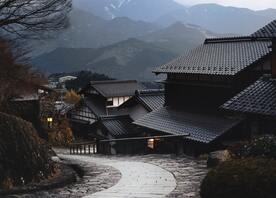Table of Contents:
Why have the Tokyo 2020 Olympics been postponed until 2021?
When will the Tokyo Olympics take place?
The Tokyo Olympics will be the ‘Light at the End of the Tunnel’
What to expect from the Tokyo Olympics in 2021..
How visiting Japan can help support this amazing country
Five Ways to Get Ready for the Tokyo Olympics from Home
It was meant to be the biggest year in Japan for half a century, but due to the global COVID-19 pandemic, the Tokyo 2020 Olympic and Paralympic Games have been moved to 2021. While this is obviously disappointing for the thousands of athletes set to compete and the millions of spectators due to visit the beautiful and unforgettable country of Japan, the health and safety of everyone involved must come first. However, all hope is not lost. Japan’s spectacular and innovative plans for the Games have not been cancelled, simply postponed, and the Olympic flame will be the light that leads all of us out of the darkness and into happier days. When the pandemic is over – hopefully sooner rather than later – and life returns to normal again, the world will be ready to unite and celebrate as never before. This means visiting Japan next year, whether it’s for the Tokyo Olympics, or just to experience everything this amazing country has to offer, is sure to be the biggest post-pandemic party in history.
Why have the Tokyo 2020 Olympics been postponed until 2021?
On 30 March 2020, the International Olympic Committee (IOC), the Government of Japan, and other key groups, officially announced new dates for the Tokyo Olympics. This followed a video conference in which the leaders of the various governing bodies, including Tokyo 2020 President Mori Yoshiro, discussed and agreed on the new schedule. What were the reasons behind the delay? The three main considerations for postponing the Games to 2021 were:
- 1. To protect athlete health and the health of everyone involved, and to support the containment of the COVID-19 virus.
- 2. To safeguard the interests of the athletes and of Olympic sport.
- 3. The global international sports calendar.
Following the announcement, Japan’s Prime Minister Shinzō Abe and IOC President Thomas Bach expressed their joint desire that the spectacular and innovative Games the country had planned should still take place in their complete form. You can read a detailed and comprehensive guide to the original plans for the Tokyo 2020 Games on our dedicated Tokyo 2020 and JR Pass webpages. Once Japan reopens to the world, its renowned domestic rail network remains the best way to navigate this beautiful and historic country, and the JR Pass is an essential all-in-one ticket and the most cost-effective way to travel. Japan has been praised for acting quickly and providing new dates for the Tokyo Olympics swiftly. President of the International Paralympics Committee, Andrew Parsons, echoed this when he said: “It is fantastic news that we could find new dates so quickly for the Tokyo 2020 Games. The new dates provide certainty for the athletes, reassurance for the stakeholders and something to look forward to for the whole world.
“When the Paralympic Games do take place in Tokyo next year, they will be an extra-special display of humanity uniting as one, a global celebration of human resilience and a sensational showcase of sport.”
When will the Tokyo Olympics take place?
The Tokyo 2020 Olympics will now be celebrated from 23 July to 8 August 2021, while the Paralympics will take place from 24 August to 5 September 2021. By moving the dates of the Games almost exactly one year forward from their original dates, this not only gives everyone involved, and the world, the chance to recover from the disruption caused by the COVID-19 pandemic, but also ensures the minimum number of clashes with the global sports calendar (the majority of which goes on a break over the summer). There had been talk of staging the Games in Spring 2021, but in the end, it was agreed that keeping the same dates, just one year later, would be the best option. It is the first time the Olympic and Paralympic Games have been postponed in history, which truly reflects the unprecedented times we are living through, although others have previously been cancelled during wartimes, such as the 1940 Games.
The Tokyo Olympics will be the ‘Light at the End of the Tunnel’.
After the official decision to postpone the Games was announced, IOC President Thomas Bach said: “With this announcement, I am confident that, working together with the Tokyo 2020 Organising Committee, the Tokyo Metropolitan Government, the Japanese Government and all our stakeholders, we can master this unprecedented challenge. Humankind currently finds itself in a dark tunnel. These Olympic Games Tokyo 2020 can be a light at the end of this tunnel.”
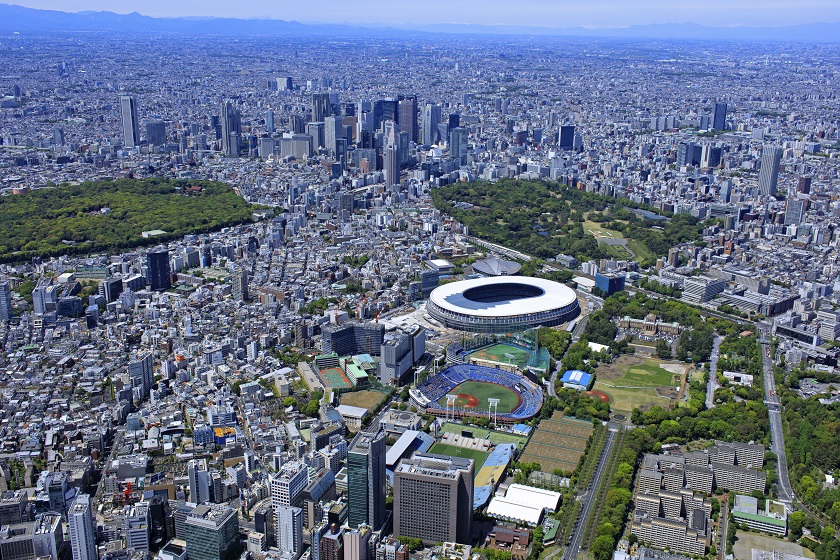
What to expect from the Tokyo Olympics
Although the Olympic and Paralympic Games have been moved to 2021, the ambitious and visionary plans that Japan had in place for this spectacular event remain in place. The year may have changed, but the hope is to deliver exactly what was promised for 2020.
‘Infinite Excitement’ awaits. This phrase was one of the many guiding principles behind the Tokyo Olympics, and the country’s ambitious and visionary plans certainly seem to live up to the promise. As hosted by Japan, the Tokyo Olympic and Paralympic Games will be one of the biggest of all time and definitely the most innovative, with futuristic robot greeters and state-of-the-art technology behind the scenes.
One of the most talked about plans for the Games was the incredible ‘Robot Project’. The objective of this was to promote robots for social good and demonstrate a positive future for the world by promoting widespread social use of robotic technologies. This will definitely feature in 2021 and could be enhanced further. It was already set to include special support for wheelchair users via dedicated Human Support Robots (HSR) and Delivery Support Robots (DSR) as ushers. There were going to be power-assisted harnesses for staff and volunteers to aid manual tasks, colourful and big-eyed anime-style mascot robots and humanoid robots as greeters, and autonomous drone-style robots who will assist in certain events, including sporting events, while other drones will beam back images from key events to those watching elsewhere to help them feel part of the action. Given the delay, it’s likely these incredible innovations will be further expanded in time for 2021.
This focus on innovation was at the heart of the Tokyo Olympics organising committee’s goals, and their vision of innovation rests on three themes to transform the world – striving for your personal best (achieving your personal best); accepting one another (unity in diversity); and passing on a legacy for the future (connecting to tomorrow). According to the latest information, the spectacular opening and closing ceremonies will still take place at the new 68,000-seater National Stadium which has been built in Tokyo specifically for the Games. It promises to be one of the world’s most impressive and state-of-the-art sporting and cultural arenas, and will be the focal point of a venue plan that includes two zones (the Heritage Zone and the Tokyo Bay Zone), which criss-cross to form an ‘infinity’ symbol. This will still be the plan for the Games, even though they are being delivered 12 months later.
The biggest stars of the sporting world were due to appear at Tokyo this year and although the Games have been delayed, you can be sure that athletes will be desperate to make up for lost time by taking part in the newly rescheduled events for 2021 – there may even be more sports stars taking part than previously planned, such will be the excitement to stage such a positive and joyous event in the wake of the current pandemic. In total, the Tokyo Olympics were set to feature 55 sports, from aquatics to wrestling (and everything in-between!), with 33 sports scheduled for the Olympics and 22 for the Paralympics. These sports will still be represented in 2021, and there may even be some exciting new additions over the next 12 months or so.
How visiting Japan can help support this amazing country
You will have the opportunity to help support Japan by travelling to this amazing country once life gets back to normal after the pandemic. The existing plans for the Tokyo 2020 Olympic and Paralympic Games were said to be costing the country $12.6bn while the IOC was also contributing $1.3bn. The rescheduling will no doubt generate further costs, but everyone agrees this will be worth it to provide an event to unite the world. Either way, Japan will need the huge economic boost from tourism to help it deliver a positive event to unite the world, while visitors eager to resume travelling and seeing the world again after the lockdown could wish for no greater country to visit than Japan. Next year, 2021, is likely to be one of the best times to visit Japan in history too as the whole nation, and the entire world, takes part in the biggest post-pandemic party of all time. Of course, whenever you visit Japan and whatever the time of year, there is a huge amount to see and do. That’s why it is one of the most popular countries in the world to visit. Here is just a small selection of the wonders that Japan has to offer international travellers:
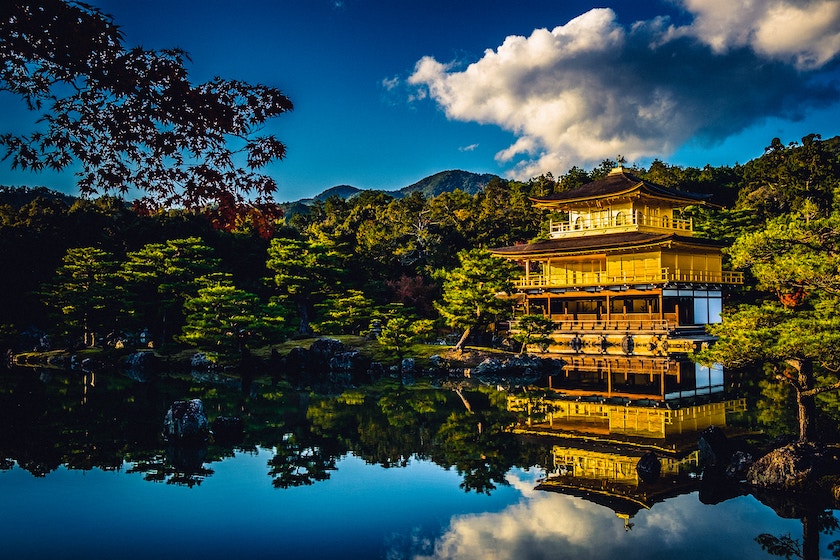
History and culture
Japan’s ancient culture and traditions are as beautiful to observe and appreciate as they are fascinating to international visitors. If you’ve ever found your imagination captured by the world of Samurai and Geisha, then you’re likely to fall in love with Japan. Kyoto is known as the cultural heart of Japan and is the ideal destination if you want to experience the country’s ancient customs and old ways, thanks to its temples, shrines and famous Gion district. We would also recommend Nikko, which makes a great day trip from Tokyo if you’re visiting for the Olympics. To get to Nikko from Tokyo, take the Tohoku Shinkansen to Utsunomiya station, where you’ll transfer to the local JR Nikko line. The entire route is covered by the JRailPass.
Spirituality and relaxation
Japan is renowned for its long spiritual history and for being one of the world’s leading destinations for those looking to relax, detox, and reconnect with the world around them. The two main religious beliefs in Japan are Buddhism and Shintoism, and their presence can be felt and seen across the country in the form of beautiful temples, shrines, monasteries, and the country’s iconic Torii gates. Read our Spiritual Guide to Japan or our Ultimate Torii Gate Tour of Japan for much more on this.
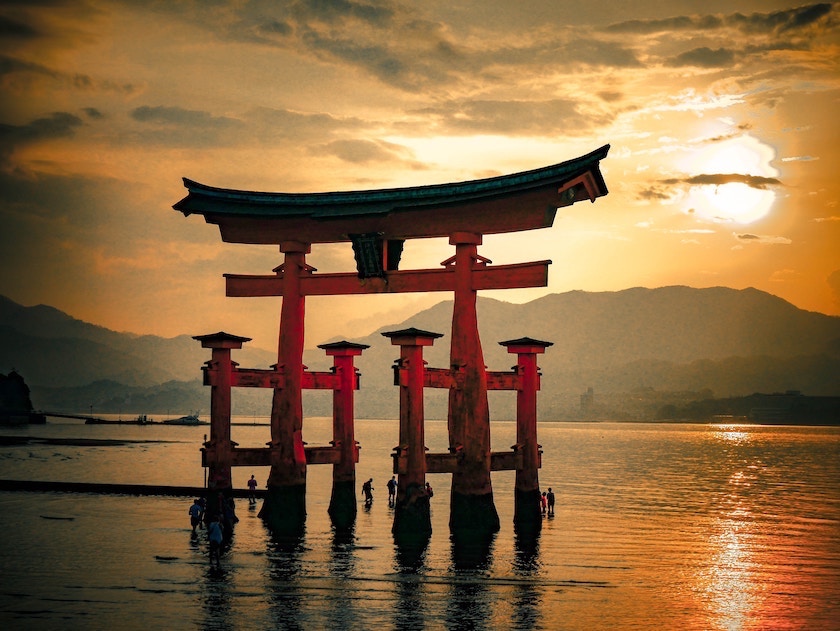
Visit Tokyo
One of the world’s biggest and most spectacular cities, visiting Tokyo is almost a once-in-a-lifetime experience at any time, never mind during 2021, when the country will be celebrating the Olympics with the pandemic (hopefully) being over. From the city’s famous Shibuya Scramble crossing to the beautiful and lively Yoyogi Parkfa, to districts such as Chuo and Chiyoda, and much more, Tokyo has more to offer in one city than some entire countries!
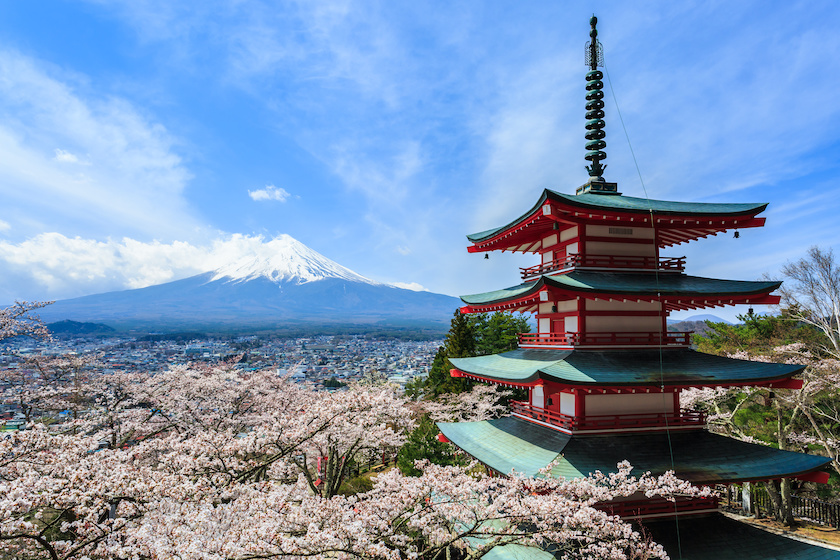
Climb Mt. Fuji
Summer is the best time to climb the iconic Mount Fuji (the mountain is actually closed to climbers during the winter months for safety) and given its proximity to Tokyo, it makes for an ideal day trip between Olympic events, especially if you’re the outdoor type. You can find out everything you need to know in our Comprehensive Guide to Climbing and Hiking Mount Fuji. Of course, even if you’re not into climbing, Mount Fuji is simply unmissable at any time of year. The famous Chureito Pagoda (pictured above with Mt.Fuji in the background) is officially one of Japan’s most Instagrammable spots, and Hitachi Seaside Park with its beautiful pink kochi shrubs is also in the area You could even plan a day trip to Hakone – a mountainous city in the Fuji-Hakone-Izu National Park just west of Tokyo. Read our guide to visiting Hakone with the JR Pass to find out more.
Relax in an onsen
Simply put, a Japanese onsen refers to a Japanese hot spring. The term sometimes extends out to encompass bathing facilities as well as hotels/inns, traditional ryokan, and spas that are built surrounding the landmark. Discover The Top Five Onsen in Tokyo.
Stay in a Ryokan
Ryokan – traditional Japanese inns featuring tatami and shōji – can be found across the country and offer overseas visitors a great way to experience the country’s most authentic accommodation. To find out more read our guide to The Best Ryokan in Japan and see the next section below for advice on where to stay during Tokyo 2020.
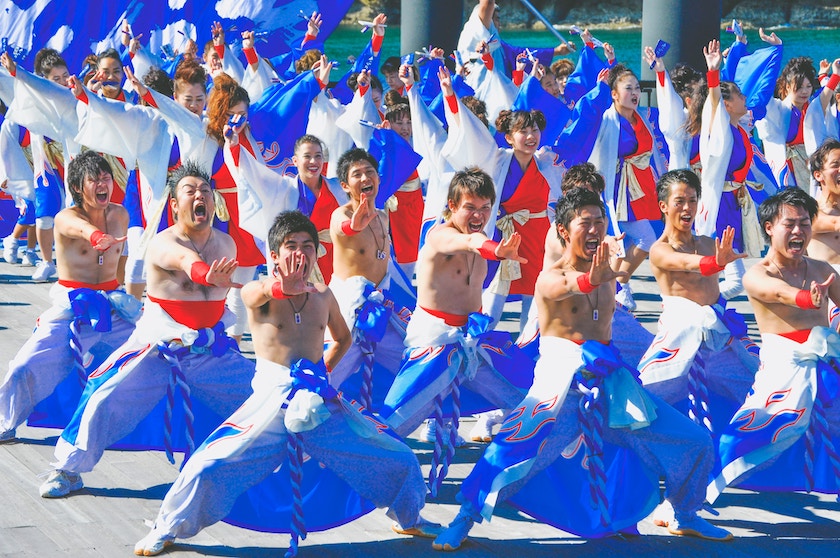
Japanese Festivals (Matsuri)
Traditional Japanese festivals known as Matsuri take place all year around and all over the country. These colourful and spectacular occasions are a huge part of Japanese culture, and to experience one for yourself is a great way to truly connect with the country and its people. Read our guide to the Top 12 Festivals To Visit in Japan to find out more.
Cherry Blossoms
Every spring, millions of visitors flock to Japan to view the sakura (cherry blossom). Next year will be no different and may be bigger than ever given the disruption to 2020’s hanami (flower gazing) season. You can find out more in Everything You Need To Know About Japan’s Cherry Blossom Festivals and Hanami.
Nature and wildlife
Japan has more than 30 stunning National Parks covering a hugely diverse landscape and boasts some of the world’s most spectacular wildlife. If you’re a nature lover, Japan is an incredible country to take a walk on the wild side. Our guide to Japan’s National Parks will tell you much more. For wildlife, why not read about Japan’s famous Snow Monkeys in Jigokudani Park?
World-famous food and drink
From sushi to sake, ramen to whisky, Japan’s food and drink is legendary. If you love food, there may be no better country in the world to visit. Even lunchboxes – known in Japan as Bento – are a food masterclass. Japan is home to some of the world’s best food, and hundreds of incredible regional dishes made with local produce. Sushi, ramen, noodles, gyoza, yakitori, takoyaki, unagi, nabe, Kobe beef – the list goes on and on and on. Whatever and wherever you choose to eat, you’ll be tasting the real Japan through its lovingly-made food so make sure you try some authentic Japanese cuisine – it’s a must-do in our opinion – and we would also highly recommend eating at a traditional izakaya restaurant. You can also read our in-depth introduction to Japanese Food and Regional Dishes for everything you need to know.
Five Ways to Get Ready for the Tokyo Olympics from Home
- Keep an eye on life in Japan using Google. Read our guide to Using Google Maps to Get A Sneak Peek of Japan to discover how to do this.
- This year is the 35th anniversary of Nintendo’s legendary character Mario. Why not get ready for the Tokyo Olympics with your family and friends by playing Sonic and Mario at the Tokyo 2020 Olympics on your Nintendo Switch? Read our guide to Japan for Gamers for more on Nintendo and its history.
- Find out how you can still plan your once-in-a-lifetime trip to Japan while at home in our guide to Social Distancing: Six Ways To Plan Your Japan Trip Long Term.
- Read up on Japan’s incredible history, such as the fascinating Edo period, and consider learning more about the language, to go beyond ‘Konnichiwa’ and ‘Kanpai’.
- Keep up to date with the latest Olympic news for all the breaking stories and updates about the Tokyo Games.
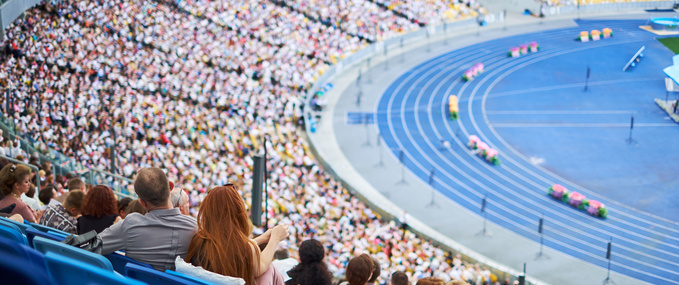
.jpeg)
